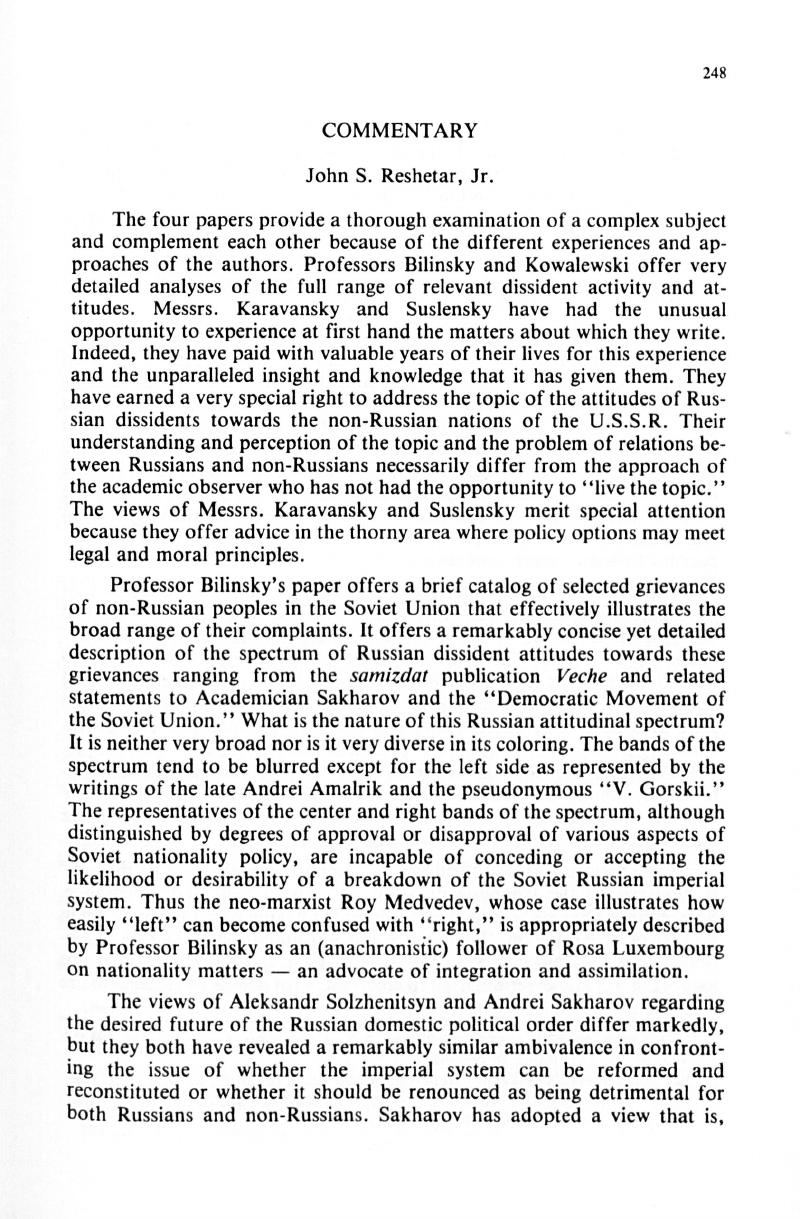No CrossRef data available.
Published online by Cambridge University Press: 20 November 2018

1. V. I. Lenin, Polnoe sobranie sochinenii, 5th ed. (Moscow: Gospolitizdat, 1964), Vol. 48, p. 235; italics in original.Google Scholar
2. See Solzhenitsyn's essay on “Repentance and Self-Limitation in the Life of Nations” in the collective work From Under the Rubble (Boston: Little, Brown, 1974), pp. 105-143, especially pp. 120 and 140.Google Scholar
3. “Interv'iu z Kronidom Liubars'kym,” Suchasnist', July-August, 1980 (nos. 235-236), p. 165.Google Scholar
4. “Interv'iu z Sergeiem Soldatovym,” Suchasnist', June, 1982 (no., 258), p. 84.Google Scholar
5. “Anketa ‘Suchasnosti’ z natsional'noho pytannia,” Suchasnist', November, 1980 (no. 239), pp. 122-123.Google Scholar
6. For an incisive examination of the blind spots of Russian dissidents that foster idealization of a healthy “national” Russia that would still retain its empire, see the article by Basil Markus on “The Voluntary and Involuntary Sins of Russian Anti-communists.” Vasyl' Markus', “Vil'ni i nevol'ni hrikhy rosiis'kykh antykomunistiv,” Suchasnist', February 1976 (no. 182), pp. 80-85. Markus contends that while intellectuals such as Solzhenitsyn and Shafarevich, in From under the Rubble, may have freed themselves from the dogmas of Bolshevism, “they remain under the weight of the ‘rubble’ of imperial thought [patterns], the idea of a ‘god-bearing people’ and messianism.”Google Scholar
7. Aleksandr Solzhenitsyn, A Lenten Letter to Pimen, Patriarch of All Russia edited by Theophanis G. Stavrou (Minneapolis: Burgess Publishing Co., 1972), p. 6.Google Scholar
8. General Anton I. Denikin, Ocherki russkoi smuty (Paris: J. Povolozky et Cie., 1921), Vol, I, pp. 8-20.Google Scholar